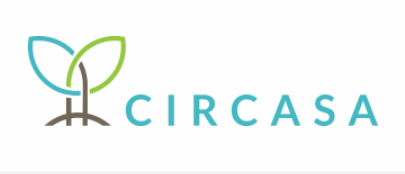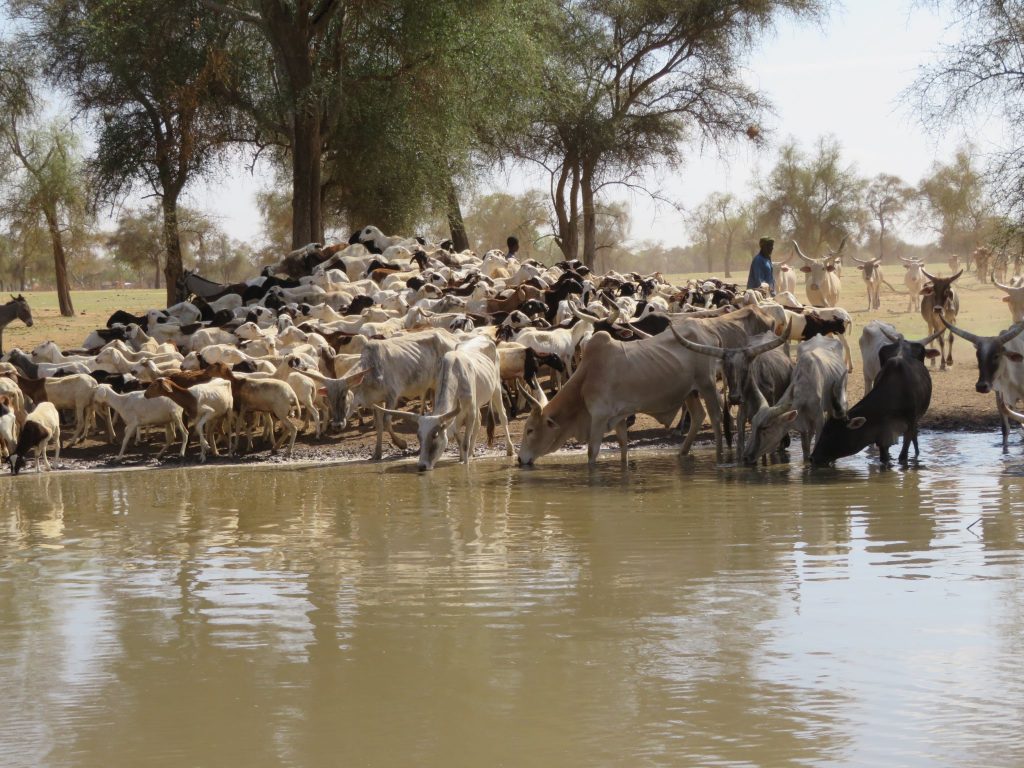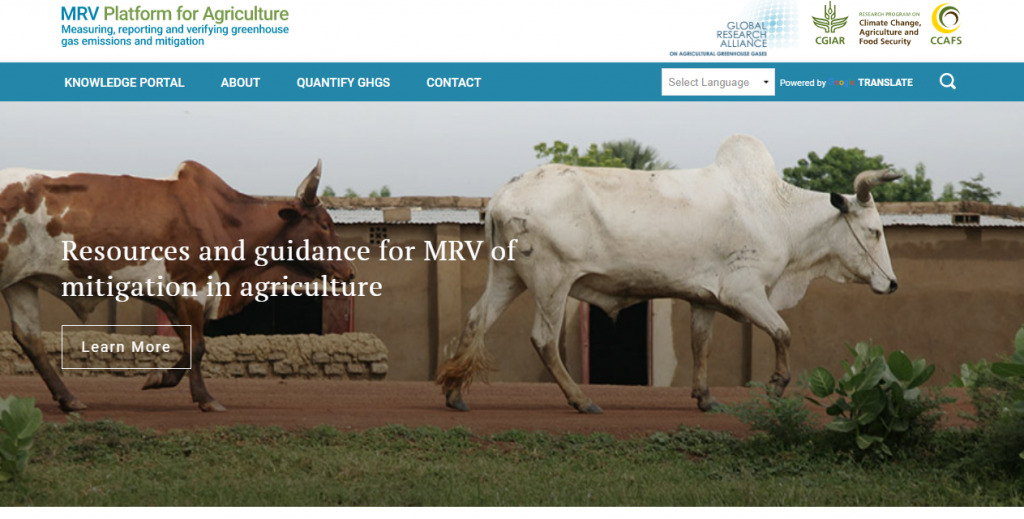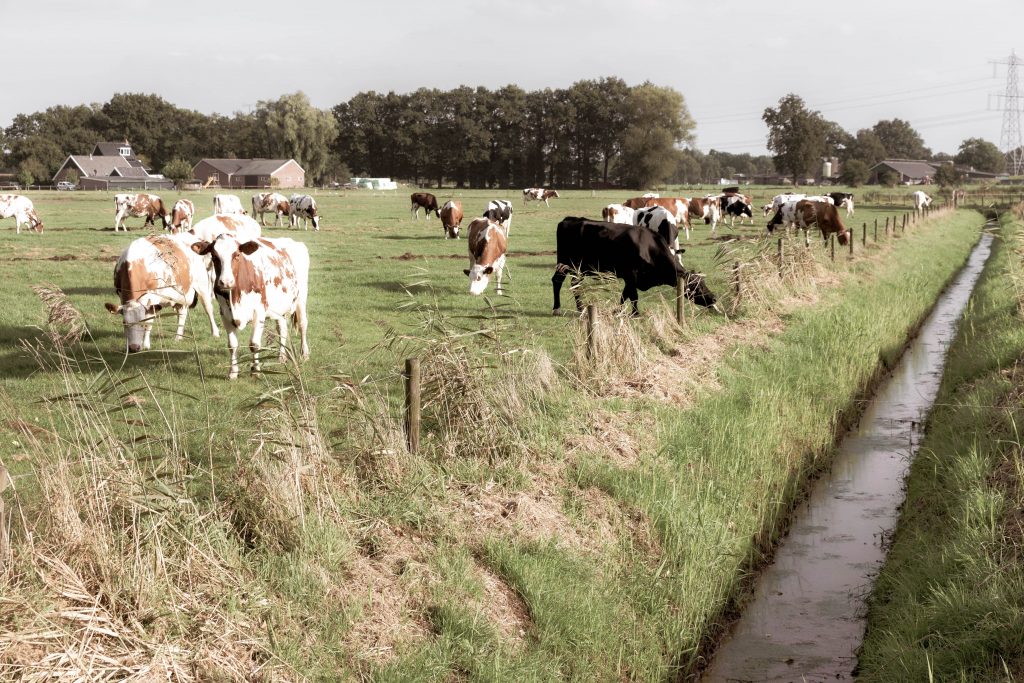The Global Research Alliance on Agricultural Greenhouse Gases (GRA) is pleased to announce Bangladesh as our newest member country. Bangladesh has become the 63rd member of the GRA.
The GRA is looking forward to working with Bangladesh to improve sustainable farming practices and to produce more food while reducing greenhouse gas emissions.
The 63 member countries now participating in the activities of the Global Research Alliance are: Argentina, Australia, Bangladesh, Belgium, Benin, Bolivia, Brazil, Cameroon, Canada, Chile, China, Colombia, Costa Rica, Côte d’Ivoire, Democratic Republic of Congo, Denmark, Dominican Republic, Ecuador, Egypt, eSwatini, Ethiopia, Finland, France, Germany, Ghana, Honduras, Indonesia, Ireland, Italy, Japan, Lithuania, Malaysia, Malawi, Mexico, Mongolia, Namibia, Netherlands, New Zealand, Nicaragua, Nigeria, Norway, Panama, Paraguay, Peru, Philippines, Poland, Senegal, South Africa, South Korea, Spain, Sri Lanka, Sweden, Switzerland, Thailand, Tunisia, Turkey, Uganda, United Kingdom, United States of America, Uruguay, Vietnam, Zambia and Zimbabwe.
On 2 September 2020, the GRA and CCAFS successfully hosted the fourth webinar of the 2020 CLIFF-GRADS Science Collaboration Series.
This week’s session on National Greenhouse Gas Inventories featured guest speaker Dr. Olia Glade, Director of Measurement, Reporting and Verification (MRV) Systems at The Greenhouse Gas Management Institute (GHGMI). This session provides context for researchers working in the fields of agricultural greenhouse gas (GHG) emissions on how to ensure research findings are relevant and implementable in a National GHG Inventory system.
Some topics we covered in the discussion were improvements to agriculture GHG inventories, addressing uncertainties, time series consistency and international reporting requirements. Please listen to the recording for more!
To register for upcoming webinars, please click here. Sessions intended for the students are restricted to CLIFF-GRADS Alumni.
Dr. Olia Glade is the Director for MRV Systems, bringing the expertise in natural science, education, greenhouse gas reporting and review under the UNFCCC and Kyoto Protocol, and designing GHG data management systems. Previous to GHGMI, Olia was New Zealand’s GHG inventory focal point at the UNFCCC and led New Zealand’s National Greenhouse Gas Inventory Programme.
The first 2020 CLIFF-GRADS Science Collaboration series: Thematic Session, was held 26 August. The topic was “Integrated Systems” and was open to alumni of the CLIFF-GRADS programme.
CLIFF-GRADS Alumni (Mary Eyeniyeh Ngaiwi of Cameroon, Abdulhakeem Lawal Ahmad of Nigeria, Fernanda Leite of Brazil, and Sara Stephanie Valencia Salazar of Colombia) shared and discussed their PhD research with their peers. Of interest to the participants was the discussion of methodology development and in particular the Nitrous Oxide Chamber Methodology Guidelines. These provide internationally agreed reference guidelines for measuring N2O emissions using chamber methodologies to inform the production of quality N2O flux measurement data and improve inter-comparability between international studies. The session was hosted by Ciniro Costa Junior (CCAFS) and featured guest speaker, Dr. Todd Rosenstock, a Climate Change and Environmental Scientist with the World Agroforestry Centre (ICRAF).
The thematic sessions occur every second week and provide an opportunity for Round 3 students to clarify their PhD research questions and/or research direction with their peers. The thematic sessions have been split into the following agricultural systems: i) integrated, ii) pastoral and agronomy, iii) ruminant, iv) rice and v) soil. These sessions emphasise student to student collaboration and are not open to CLIFF-GRADS hosts.
In addition to the thematic sessions, a series of special sessions with guest speakers explore the current science and policy challenges for agricultural greenhouse gas emission management. To register for upcoming webinars, please click here.
Issue 4 of the Inventories and Nationally Determined Contributions (NDC) Support Network Newsletter of the Global Research Alliance on Agricultural Greenhouse Gases (GRA) is now available.
Subscribe here to receive future issues
Issue 4 features articles relevant to GHG quantification and national inventory systems including the launch of the CBIT-AFOLU programme, inventory improvements to the Swiss Soil Carbon Inventory, a summary of the SEACRIFOG long term GHG Observation Project in Africa, CBIT-AFOLU enhancing capacity and transparency project, the CaSSECS Project which aims to quantify carbon sequestration and GHG emissions in agro silvopastoral ecosystems in Sahelian Africa, and an update on the GHG Agriculture and Land Use Accounting Tool (ALU).
Contributions and feedback are welcomed, please contact one of the Network leads with any relevant research, opportunities or country inventory and NDC updates for the next issue.
The Coordination of International Research Cooperation on Soil Carbon Sequestration in Agriculture (CIRCASA) has released its August 2020 newsletter.
This edition includes information about:
- Information on the upcoming International Research Consortium on Soil Organic carbon in Agriculture
- The new mission proposed by the EU “Soil Health and Food” Mission Board publication
- Other news and initiatives
Read the newsletter here

The second of the three-part Progressing Partnerships webinar series – “Creating impact through collaboration” was held on 19 August 2020. The webinar was designed to provide an opportunity for participants to learn about the operations and future directions of the four GRA Research Groups and associated science networks of the GRA. Fifty-six participants from 34 countries, representing government agencies, universities, national and regional research institutions and development agencies, attended the webinar.
The webinar featured four topical expert facilitators (Jeroen Dijkman, Richard Dewhurst, Laure Tall and Richard Eckard) who not only shared their personal experiences in working with different stakeholders from both developed and developing countries but also highlighted the opportunities for research collaboration provided by the GRA’s four Research Groups (Croplands, Paddy Rice, Livestock and Integrative. Panel discussions focused on the benefits of active engagement in the research groups, funding opportunities and how member countries can effectively participate in research networks. The need for African researchers to be proactive and work together to develop initiatives that will bring us closer to achieving economic gains and food security while responding to climate change was emphasised.
This webinar was hosted by the GRA Secretariat in the context of the its continuing commitment to supporting developing countries to enhance their scientific capability and institutional capacity to estimate and track agricultural greenhouse gas emissions, as well as part of its efforts to build in-country leadership vital to the principles that underpin greenhouse gas inventories, NDCs and MRV processes.
To register for the final webinar, please click here.

Over the next five years, concrete steps will be taken to strengthen the local capacity of West African countries to quantify greenhouse gas and ecosystem impacts of Sahelian agro-silvopastoral systems and to provide advice on livestock policies aimed at optimizing management practices adapted to the region.
The CaSSECS project will be implemented in Senegal, Burkina-Faso, Niger, Mali, Chad and Mauritania, led by the Senegalese Institute of Agricultural Research (ISRA) and supported by several other local and international partners. Research partners include: Agrhymet-CILSS, APESS, The Catholic University of Louvain, CIRAD, CIRDES, CNRS, CSE, The Department of Livestock of the Senegalese Ministry of Livestock, FAO, INERA, INRAE, IRD, Lund University, RECOPA, Toulouse III University, Cheikh Anta Diop University, and The University of Copenhagen.
What is the current political, policy and scientific context?
In Sahelian countries, (agro) pastoral livestock farming systems are not considered a high priority by politicians. A solid scientific evidence basis is necessary to demonstrate the potential for increased production efficiency and consequent lower emissions per unit of product, to establish a political framework for implementing successful mitigation strategies in these systems.
One of the major challenges of the CaSSECS project is to shift decision makers’ perceptions of the impact of (agro) pastoral livestock farming systems on the environment. CaSSECS aims to do this by working to recognize (agro) pastoral livestock farming systems as a mode of production and lifestyle and for their environmental, economic and social contributions.
A lack of understanding on the potential environmental gains to be made from effective policy strategies in these systems is explained in part by a segmented view of (agro) pastoral livestock systems, and by a lack of scientific and technical skills to analyse their GHG emissions and generate reliable data. In addition, CaSSECS will collect data on the carbon sequestration potential of the ecosystem, which has to be taken into account in order to have a clear picture of (agro) pastoral livestock systems’ full carbon balance and inform decision making.
What will the project do?
The project will undertake assessments of existing livestock management practices, test optimised practices through pilot activities, and provide academic and professional trainings. Tools and models will be developed for data collection and long-term monitoring and attention will be paid to establish effective institutional arrangements and an active dialogue between all relevant stakeholders in the region.
The outcomes of the CaSSECS project will be that farmers will adopt optimal management practices (including nutritional strategies and more efficient resource management) that will ultimately improve productivity.
Note: the research study conducted in Senegal (Assouma et al. 2020) shows that pastoral landscapes can have a neutral carbon balance, and that emissions from animals are offset by carbon sequestration in soils and plants.
How will the outputs of the project feed into the GHG inventories of the participating countries and the links to their national NDC processes?
Activity data will be made available to national inventory compilers for comprehensive trend analyses of the environmental impact of livestock systems, which in turn will contribute to the evidence base that advises policy decisions on implementation of mitigation strategies.
By promoting the collection, measurement and analysis of reliable data on carbon footprint optimization practices in (agro) pastoral livestock systems, the CaSSECS project makes available to national inventory managers (focal points of ministerial offices) the data necessary for a global trend analysis.
The strategy proposed by the CaSSECS project is to:
- develop an improved aggregation model and an adapted information system, and
- train inventory compilers and teams in technical trainings and workshops so that they are competent and autonomous in the use of the relevant inventory tools.
The national bodies of the Sahelian countries of Permanent Inter-State Committee for Drought Control in the Sahel (CILSS) will ultimately better understand the issues around (agro) pastoral livestock systems, will build and update these repositories, and will integrate this new data and renewed perspective into their national policies.
The COVID-19 pandemic and the global recovery are still evolving. Daily, we are gaining insights on the impacts the pandemic is having on greenhouse gas emission research. In a strange way, virtual working, that has become more prevalent during the pandemic, has afforded greenhouse gas researchers a unique opportunity to finalize manuscripts and reports they were previously unable to complete due to busy schedules.
For researchers conducting conceptual or desktop based studies, which depend on existing datasets, models and literature can continue to advance these research projects. Indeed, desktop based research is set to benefit due to several publication agencies and research groups advancing open access publication of research manuscripts and datasets.
However, the situation is different for field and measurement-based studies or those that require new data collection through face-to-face meetings or interviews (especially in remote areas). For soil greenhouse gas emission monitoring, research groups that have access to automated data collection technologies (i.e., automated chambers, eddy covariance towers), are able to continue their measurement campaigns. In contrast, research groups that depend on manual systems (i.e., static chambers) involve travelling to measurement sites which has become very complex under lock down conditions. Further, the disruption of international travel has negatively impacted greenhouse gas research exchange programmes where parties are unable to commence their research stay. Consequently, measurement campaigns that would have otherwise been led by the exchange researchers have had to be halted or postponed.
Most greenhouse gas researchers have by now learnt new ways of working virtually and are having to adapt to the pandemic related anxiety and it’s uncertainties. This mix of circumstances in many cases has been draining and affects focus for progress planning, researching, reporting and manuscript writing. To overcome the potentially detrimental mental health challenges and to develop mental strength, researchers are having to find and adapt effective stress management techniques and habits.
By implication, to become more resilient to future crises, there is a need for mainstreaming stress management techniques to complement scientific training.
The database of national agriculture inventory methodological and emission factor improvements is being developed as an open and freely accessible online electronic resource. The Inventories and NDC Network is currently seeking interesting case studies for inclusion in the database.
If you are aware of any recent and/or major changes to your country’s agriculture inventory methodology and/or emission factors, please notify the GRA Secretariat at [email protected].
The case studies are intended to support inventory compilers to identify improvements that can be made to their current methodology and/or to emission factors in use in their national agriculture inventories. The case study information will potentially:
- increase the reporting Tier related to that specific improvement and emission category(ies),
- enable research priorities to be more easily and quickly identified, lowering the costs of countries being able to provide a robust and internationally defensible scientific evidence base to justify any change to emission reporting (as part of international reporting requirements),
- guide and accelerate activity data collection processes specific to the inventory improvement in question,
- guide how improvements might be implemented in their country’s agriculture inventory model, and help compilers estimate the potential impact on reported emissions.
The Resource will explain the context for the inventory improvement and to what farming systems or regions it is expected to be relevant for.The case studies from this project will be published on the www.agMRV.org website, run by the GRA and CCAFS.
The categories of interest for methodological and emission factor improvements are:
- 3A1 Enteric Fermentation
- 3A2 Manure Management
- 3B2a Cropland Remaining Cropland
- 3B2b Land Converted to Cropland
- 3B3a Grassland Remaining Grassland
- 3B3b Land Converted to Grassland
- 3C1b Biomass Burning – Cropland
- 3C1c Biomass Burning – Grassland
- 3C2 Liming
- 3C3 Urea Fertilization
- 3C4 Direct N2O emissions from Managed Soils
- 3C5 Indirect N2O emissions from Managed Soils
- 3C6 Indirect N2O emissions from Manure Management
- 3C7 Rice Cultivation


Methane emissions from reservoirs and other constructed Freshwater ponds (e.g. farm dams) have now been included in the Australian national greenhouse gas inventory, including an estimate for certain Ponded pastures. For all dams and reservoirs methane emissions are reported under the Wetlands Remaining Wetlands (see Page 116, Section 6.10) classification. Freshwater ponds include stock dams as well as crop dams and farm tanks, which are small to large, shallow impoundments used for crop irrigation.
Freshwater ponds: The methane emissions in the inventory from dams is based on the paper by Grinham et al., 2018, supported by the work of Ollivier et al 2018, resulting in an average emission around 140 kg CH4/ha/yr for all dams. This compares with the IPCC default factor of 183 kg CH4/ha/yr. This research concluded that farm dams in grazing areas have higher methane emissions than farm dams in cropland.
The Australian inventory assumes that this difference occurs due to additional organic matter (OM) inputs, namely manure from cattle, sheep and other livestock. The Australian inventory therefore now allocates a portion of these methane emissions from dams (the fraction assumed to arise from manure) to the Manure Management (see Section 5.4, page 304) classification, based on the livestock activity data, estimating the rate of livestock manure washing into dams is around 5% of all manure deposited on pasture and range.
The higher methane emissions from dams in grazing areas reported by Grinham et al. 2018 and Ollivier et al. 2018 are presumably due to organic matter input, either through direct deposit of manure, or through rain runoff into the dam. The research noted that algal growth stimulated by organic and nutrient inputs contributes to elevated methane emissions as well.
Ponded pastures are ponds constructed in grazing lands in tropical and subtropical regions that experience distinct wet and dry seasons. The ponds are designed to flood seasonally (during the wet), and are sown with water tolerant grasses. These grasses grow mainly during the wet season, providing grazing for cattle in the dry season as the ponds dry out.
The inventory estimates that Australia has about 52,500 ha of ponded pastures in the dry tropics and subtropics. The national inventory therefore estimates methane emissions from this source under Freshwater Ponds. While there is limited information on the emission rates from these water bodies, as they are vegetated, it is likely that methane emissions are high. The emissions reported for Wetlands converted to grassland are therefore used.
On the 19 August 2020, the GRA and CCAFS successfully hosted the second webinar of the 2020 CLIFF-GRADS Science Collaboration Series.
Eighty CLIFF-GRADS Alumni and Hosts from 33 countries attended this week’s session with Sir Peter Gluckman on The Science-Policy Interface. Sir Peter shared with us his views on challenges that governments face with policy making and the often misalignment of communicating a ‘science problem’ in the context of a ‘policy problem’.
The series was developed to build technical capability, transfer knowledge and facilitate international collaboration for CLIFF-GRADS Alumni, given current international travel restrictions.
A series of special sessions with guest speakers emphasises the current science and policy challenges for agricultural greenhouse gas emission management. To register for upcoming webinars, please click here. Sessions intended for the students will be restricted to CLIFF-GRADS Alumni only.
Sir Peter Gluckman is chair of the International Network of Government Science Advice (INGSA) and president-elect of the International Science Council (ISC). From 2009-2018 he was the first Chief Science Advisor to the Prime Minister of New Zealand. He has written and spoken extensively on science-policy, science-diplomacy, and science-society interactions.
The Thünen Institute of Climate-Smart Agriculture, Germany are seeking candidates for a PhD position on “Minimizing greenhouse gas emissions and optimizing biomass yields of paludiculture on rewetted fen peatlands”. It is a 4-year position and paid with 65% E13 TVÖD salary.
Applications by international students are welcome.
For further inquiries please contact: Dr. Bärbel Tiemeyer ([email protected]) or Dr. Arndt Piayda ([email protected]).
Apply now! Applications deadline is 31 August 2020.
